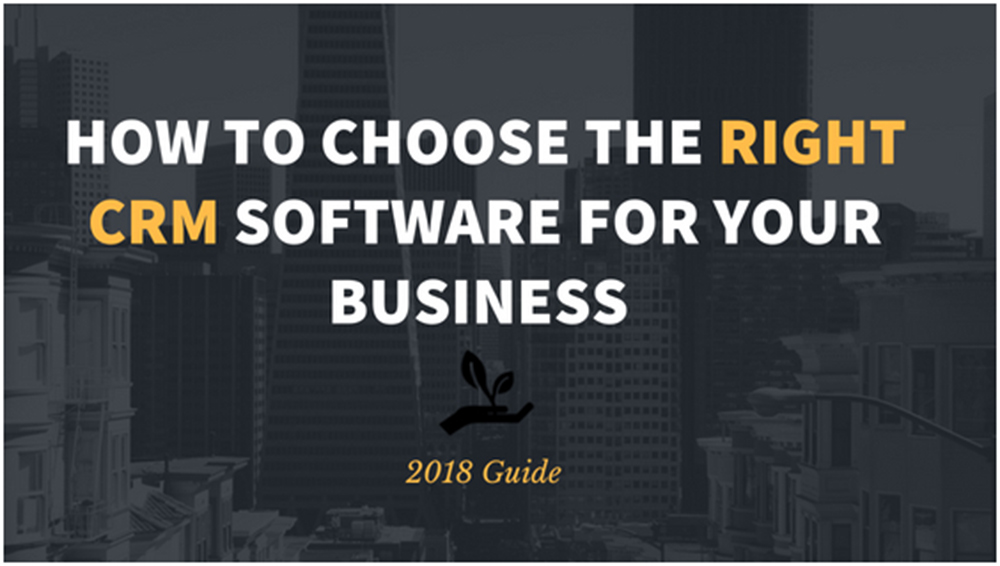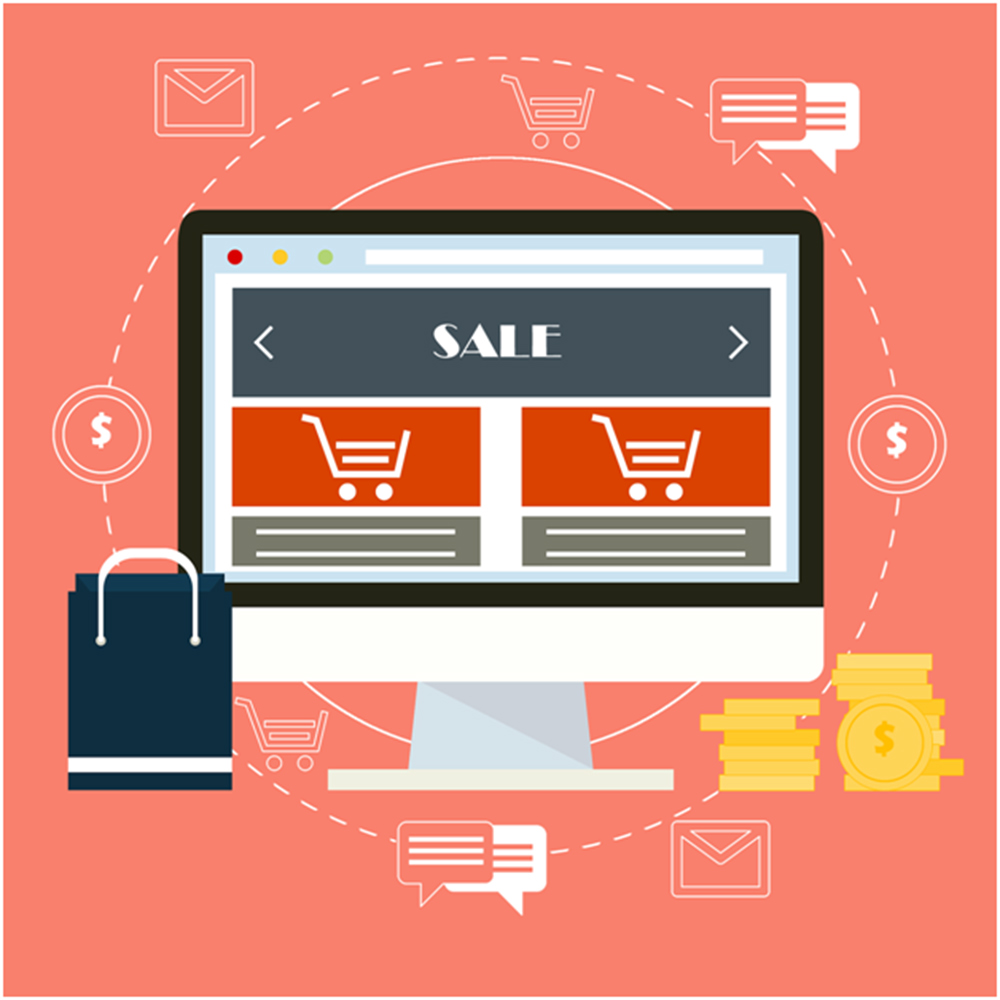August 21, 2018
The fast-paced development in technology has made CRM systems an important part of every industry in the market. In fact, the growing complexities and the demand of customers have made smart technology and applications like CRM’s synonymous, with the competitive advantage among peers. No wonder, Gartner predicted Customer Relationship Management to be the fastest growing software market in 2018.
 Though research has predicted how this market will grow, and in which area progress would be more crucial, little has been said about the precise requirements of each business in regards to CRM software, and how they will be affected in the future. However it appears that a lot of start-up companies unfortunately don’t fully understand what the software can do for their business, and how they should actually invest in it.
Though research has predicted how this market will grow, and in which area progress would be more crucial, little has been said about the precise requirements of each business in regards to CRM software, and how they will be affected in the future. However it appears that a lot of start-up companies unfortunately don’t fully understand what the software can do for their business, and how they should actually invest in it.
When it comes to CRM software, the requirements of organisations vary, depending on the nature of the business and the scale and complexities of the operations involved. That’s why, it is extremely important for the firms to make their decisions on a specific type of CRM, especially since the investments in such applications can go up to six figures, and the scaling of your business will largely depend on it.
As mentioned above, every business is different, and therefore, their requirements from a Customer Relationship Management software varies too. In short, there is no one-size-fits-all solution, though there will always be customisations available. So if you’re just at the beginning stage of your CRM investment, have a look at the different factors you should consider before making any hasty decisions.
It is self-evident that a law consultancy firm will not have the same requirements as an online retail store. Therefore, the nature of your business, and consequently its CRM requirements, should always be the primary factor in your consideration for the aforementioned investments.
For example, if you own a consultancy firm for financial investments or other similar professional activities, then your CRM will mostly be used as a smart filing cabinet. You would not need to enter the details of the buyers’ journey, and there would be hardly anything that you could integrate in terms of communication channels. Such businesses are still usually handled in person, and if there could be any stages of the buyer’s journey, they would be too distinct, personalised, and complex to streamline or automate through a CRM software. For such firms, the purpose of CRM software is to simply organise the client details, including their contact information, event lists, and respective documents. For such firms, using cloud solutions with easy mobile integration is the most efficient use, as it will provide reasonable flexibility for the staff to organise their tasks on the go, and in real-time whilst having personal discussion with the clients.
On the other hand, if your online business is as complex as eCommerce or other B2B and B2C services, that require an umpteenth amount of transactions per day, investing in a more comprehensive solution would be imperative for you. In these circumstances the system won’t just be used to store the relevant data, as it will be required to handle a multitude of client/customer requirements, in the most organised manner with a quicker turnaround time and best practices, so that the whole team gets the visibility of the transaction and the scaling becomes easier. The CRM software will actually become the foundation of your business processes, making it the focal point of all the operations, automating many of these processes through the tough channels of bureaucracy. Having this type of CRM will provide data analytics, providing advantages in data forecasting and prediction analysis.

These two circumstances are at opposing ends of the spectrum, but it gives you a better understanding to how different systems work for a variety of businesses. For better consultancy on the right solution, connect with a subject expert, or professional developer, and read on to understand the other factors that should be involved in your decision-making.
Modern CRMs are much more than just a simple software used to manage the contact information and transaction history of the clients. Now with the emergence of machine learning and other advanced technologies, they are being used to give organisations competitive advantages through analytical predictions. However, as discussed above, not all the features may be required for your business in the initial stages, and therefore, investing in this brings a negative impact on the overall ROI. Here are some of the common features of CRM to assist you in making a more informed decision.
Dashboards: Reports and dashboards formulate the infrastructure of the most basic CRM software. If need be, you can also opt for more advanced dashboards that show you the real-time information from varied POS. Similarly, for reporting, ensure that your solution offers tools for customisation, import, and export requirements of your organisation.
Workflows: In an organisation, where project management is an important aspect of everyday operation, workflow management feature of Customer Relationship Management software becomes quite important. Moreover, since the workflow process for each product varies from another, it is helpful to decide beforehand how your organisation could benefit the most from this feature.
Lead Management: One of the most advantageous features in the modern CRM is its ability to accommodate lead nurturing and management. Through this, you can easily find new customers through channels like social media and your website visitors. You can also easily identify the future requirements of your customers, giving them a more personalised experience and improving your sales all in this one action.
Marketing Automation: With the ever-rising competition, marketing is becoming an integral part of many of the businesses that are looking for a more sustainable future. If your business also requires active marketing operations, your CRM solution can help you with a more streamlined and even an automated approach in email marketing, SMS messaging, and personalised lead generation content through newsletters.
Another important aspect to consider is the scale and scalability of your business. The scale of the business is something that you will anyway have to think about, as most of the plans offered by CRM vendors are based on that and the number of users accessing it. However, if you don’t make this decision with ‘scalability’ in mind, your future investments will increase multifold as your business may grow. In other words, any business with a goal is bound to grow in the future as the demand and supply ratio increases, however, the same cannot be said of the CRM software. So if you only decide your CRM investments on the basis of your present scale, you will again have to grapple with all the costs and research overheads when your business requirements will grow, and you know grow they will. The best deal here would be to make your investments with a vendor who gives assurance of handling the scalability aspect of your business, this will completely free you from the additional tasks of CRM cost management while ensuring easy scaling in the future and cost-effective solution in the present.
With these factors in mind and a proper strategy, you can ensure that you get the maximum advantages from your CRM investments.
So once you understand the factors involved in making the decision on CRM investment, and have formulated the perfect strategy to make it a part of your organisation, your next step would be to choose the right tool that meets your precise requirements.
Again, while the role of subjective requirements is of the utmost importance, there are a couple of factors that are applicable to all the businesses; factors like ease of scaling, user interface, and functionalities that help business grow. There more than your requirements, the features of the system becomes more important. And to get more contemporary information on the background, you can refer to the latest reports on the top CRM software. These reports, by keeping modern-day requirements of the users in consideration, rank the top CRM applications in the industry.
One such report by G2 Crowd includes a comprehensive overview of the top 72 CRM software, including Salesforce, MS Dynamics 365, Zoho, and Sugar CRM. One of the important findings in the report is about how the varied features offered by these CRM software become more or less important, once the software becomes an integral part of an organisation’s workflow.
It shows that features like contact and account management, task and activity management, and lead management become more important. The same report that took over 20,000 customer reviews into consideration showed that features like social networking integrations, social collaboration features, marketing ROI analytics, and mobile user support become least effective.
On the basis of these stats, the platform has also created a performance grid. Head over there to see how your chosen CRM software ranks amongst its peers. If you are in a manufacturing business, then you can use this report to make a more informed decision. For more business-specific guidance, you can also consult with our CRM development experts, who have a profound experience in helping business from varied industry verticals with custom CRM solutions.
Resources:
https://www.gartner.com/newsroom/id/3871105
http://www.crmsearch.com/crm-selection-top-factors.php